Prose writer, dramaturge, screenwriter, one of the most important film makers of the second half of the 20th century. In 1994 he was awarded the Prix Europa Berlin. His screenplay for the film Zánik samoty Berhof (End of the Berhof Farm Solitude) won the Grand Special Prize at the Karlový Vary Film Festival. He has won several international awards including prizes from Cannes, Monte Carlo and Sapporo. He is the recipient of the State Prize for Literature (2006) and the Annual Czech Literary Foundation Fund prose award (1995). He was born in Prostějov on 12 October 1939.
Vladimír Körner
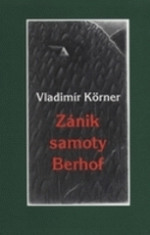
End of the Berhof Farm Solitude
Zánik samoty Berhof
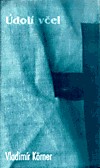
The Valley of the Bees
Údolí včel
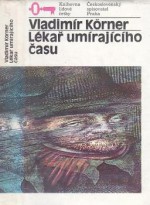
Doctor of Dying Time
Lékař umírajícího času
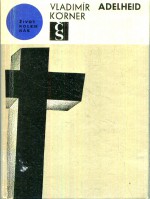
Adelheid
Adelheid
| Title | Publisher | Year | Selected published translations | Awards |
|---|---|---|---|---|
| Conversations 1964 - 2009 (Rozhovory 1964–2009) | Dauphin | 2013 | ||
| Conversations 1964–2009 (Rozhovory 1964–2009) | Dauphin | 2010 | ||
| The Death of Saint Vojtěch (Smrt svatého Vojtěcha) | Dauphin | 2009 | ||
| Life for a Signature, Angel of Mercy (Život za podpis. Anděl milosrdenství) | Dauphin | 2008 | ||
| Scythe of Sand (Písečná kosa) | Dauphin | 2007 | ||
| Doctor of Dying Time (Lékař umírajícího času) | Dauphin | 2007 | ||
| Works II, VI (Adelheid, End of the Berkhof Farm Solitude, Birth of a Mountain Spring, Post bellum 1866, The Betrayal - Der Betrogene) (Spisy II, VI (Adelheid, Zánik samoty Berhof, Zrození horského pramene; Post bellum 1866, Oklamaný – Der Betrogene)) | Dauphin | 2007 | ||
| The Oxbow. Splinters in the Grass. The Blood of One Who Disappeared (Slepé rameno. Střepiny v trávě. Krev zmizelého) | Dauphin | 2006 | ||
| End of the Berhof Farm Solitude (Zánik samoty Berhof) | Veduta | 2005 | ||
| The Blood of One Who Disappeared (Krev zmizelého) | Dauphin | 2005 | ||
| Dog Leather (Huncleder). Wailing Stone (Psí kůže (Huncleder). Kámen nářku) | Periplum/Dauphin | 2002 | ||
| The Valley of the Bees (Údolí včel) | Dauphin | 1997 | ||
| Post Bellum 1866 (Post Bellum 1866) | Votobia | 1997 | ||
| Scythe of Sand (Písečná kosa) | Ivo Železný | 1995 | ||
| Bombastic Novellas (Odváté novely) | Melantrich | 1995 | ||
| The Betrayal (Oklamaný – Der Betrogene) | Akropolis | 1994 | ||
| The Death of Saint Vojtěch (Smrt svatého Vojtěcha) | Akropolis | 1993 | ||
| Dog Leather (Huncleder) (Psí kůže. Huncleder) | Favia Internatonal | 1991 | ||
| Adelheid, The Valley of the Bees, Angel of Mercy (Adelheid. Údolí včel. Anděl milosrdenství) | Československý spisovatel | 1989 | ||
| Life for a Signature (Život za podpis) | Československý spisovatel | 1989 | ||
| Angel of Mercy (Anděl milosrdenství) | Československý spisovatel | 1988 | ||
| Doctor of Dying Time (Lékař umírajícího času) | Československý spisovatel | 1987 | ||
| Post bellum 1866 (Post bellum 1866) | Československý spisovatel | 1986 | ||
| Doctor of Dying Time (Lékař umírajícího času) | Československý spisovatel | 1984 | ||
| Autumn Novellas (Podzimní novely) | Československý spisovatel | 1983 | ||
| The Birth of a Mountain Spring (Zrození horského pramene) | Československý spisovatel | 1979 | ||
| The Valley of the Bees (Údolí včel) | Melantrich | 1978 | ||
| End of the Berhof Farm Solitude (Zánik samoty Berhof) | Československý spisovatel | 1973 | ||
| Splinters in the Grass (Střepiny v trávě) | Československý spisovatel | 1971 | ||
| Scythe of Sand (Písečná kosa) | Československý spisovatel | 1970 | ||
| Adelheid (Adelheid) | Československý spisovatel | 1967 | DE | |
| The Oxbow (Slepé rameno) | Československý spisovatel | 1965 | ||
| Splinters in the Grass (Střepiny v trávě) | Československý spisovatel | 1964 |
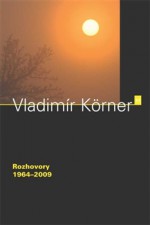
Conversations 1964 - 2009
Rozhovory 1964–2009
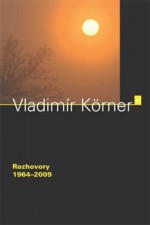
Conversations 1964–2009
Rozhovory 1964–2009
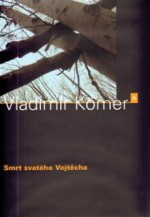
The Death of Saint Vojtěch
Smrt svatého Vojtěcha
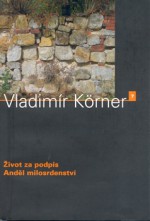
Life for a Signature, Angel of Mercy
Život za podpis. Anděl milosrdenství
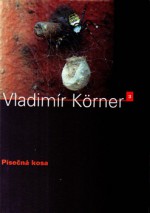
Scythe of Sand
Písečná kosa
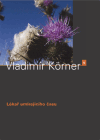
Doctor of Dying Time
Lékař umírajícího času
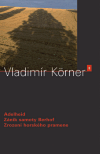
Works II, VI (Adelheid, End of the Berkhof Farm Solitude, Birth of a Mountain Spring, Post bellum 1866, The Betrayal - Der Betrogene)
Spisy II, VI (Adelheid, Zánik samoty Berhof, Zrození horského pramene; Post bellum 1866, Oklamaný – Der Betrogene)
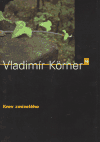
The Oxbow. Splinters in the Grass. The Blood of One Who Disappeared
Slepé rameno. Střepiny v trávě. Krev zmizelého

End of the Berhof Farm Solitude
Zánik samoty Berhof
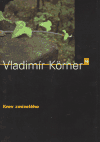
The Blood of One Who Disappeared
Krev zmizelého
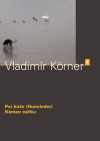
Dog Leather (Huncleder). Wailing Stone
Psí kůže (Huncleder). Kámen nářku

The Valley of the Bees
Údolí včel
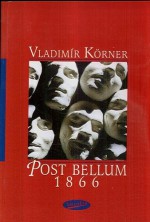
Post Bellum 1866
Post Bellum 1866
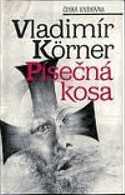
Scythe of Sand
Písečná kosa
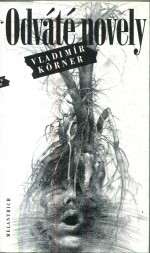
Bombastic Novellas
Odváté novely

The Betrayal
Oklamaný – Der Betrogene
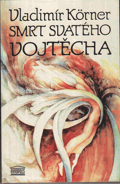
The Death of Saint Vojtěch
Smrt svatého Vojtěcha
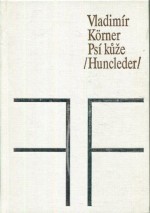
Dog Leather (Huncleder)
Psí kůže. Huncleder

Adelheid, The Valley of the Bees, Angel of Mercy
Adelheid. Údolí včel. Anděl milosrdenství
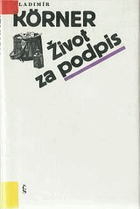
Life for a Signature
Život za podpis
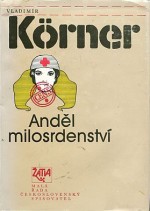
Angel of Mercy
Anděl milosrdenství

Doctor of Dying Time
Lékař umírajícího času
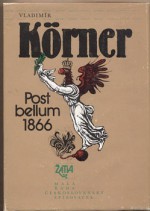
Post bellum 1866
Post bellum 1866
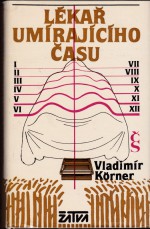
Doctor of Dying Time
Lékař umírajícího času
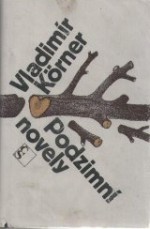
Autumn Novellas
Podzimní novely
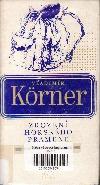
The Birth of a Mountain Spring
Zrození horského pramene
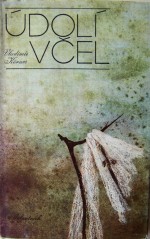
The Valley of the Bees
Údolí včel
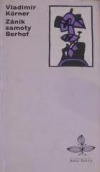
End of the Berhof Farm Solitude
Zánik samoty Berhof
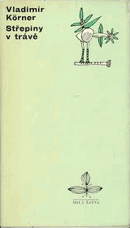
Splinters in the Grass
Střepiny v trávě
Písečná kosa
Vladimír Körner
Scythe of Sand
Písečná kosa

Adelheid
Adelheid
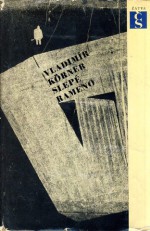
The Oxbow
Slepé rameno
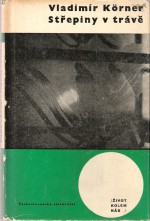
Splinters in the Grass
Střepiny v trávě
| Award | Year | Country |
|---|---|---|
| State Award for Literature | 2006 | Česká republika |
Praise
Körner’s conception of Czech history is unique in that his perspective comes from that of the victims. He empathizes with his victims as they are never dishonest or horrible people, they simply have had the misfortune of being in the wrong place at the wrong time. The only meaning that can be taken has to be from a profound, personally experienced tragedy.
—Milena M. Marešová
There are two moments from the war which are key to Körner’s work – the first was his birth, which occurred during an enforced journey from the Nazi-occupied Sudetenland. The second was when, just a few days before the end of the war, his father was shot right in front of him.
Körner’s books are mainly related to his screenplays or as film drafts. He studied at FAMU (Film and TV School of the Academy of Performing Arts in Prague) and worked at the Barrandov Film Studios. His made his debut in student films. In 1963 he wrote the screenplay for a short, poetic film, Čas jeřabin (The Time of the Rowanberry) and collaborated with Jiří Sequens on his first feature-length film, Deváté jméno (The Ninth Name). His meeting with František Vláčil in 1967 was of great importance, and they went on to make Údolí včel (The Valley of the Bees, 1967), Adelheid (1969) and Pověst o stříbrné jedli (Tale of the Silver Fir, 1973).
He made his literary debut with the novella Střepiny v trávě (Splinters in the Grass, Československý spisovatel, 1964), in which a young girl is forcibly taken from her parents, who are condemned to a concentration camp, and sent to be brought up in Germany. This was followed by the novel Slepé rameno (The Oxbow, Československý spisovatel, 1965), focusing on the activities of the resistance during the Second World War, and the novella Adelheid (Československý spisovatel, 1967) and Písečná kosa (Scythe of Sand, Československý spisovatel, 1970). This tells the dilemma of a member of the Order of the German Knights who must kill in the name of a peace-loving faith. Here we can already see two strands in Körner’s work – one is the examination of the distant past, while the other emerges from the recent history of the Second World War and its influence on the lives of ordinary people. Books which fall into the first category include Údolí včel (in book form, Čs. spisovatel, 1975) and Lékař umírajícího času (Doctor of Dying Time, Čs. spisovatel, 1984) about Jan Jesenius, whilst Zánik samoty Berhof (Čs. spisovatel, 1973, film 1983), Zrození horského pramene (The Birth of a Mountain Spring, Čs. spisovatel, 1979) and Pramen života (The Source of Life, in magazine form as a film script, Film a doba, 2000) belong to the second. Körner also presented a deeply human description of people’s lives during the First World War in Anděl milosrdenství (Angel of Mercy, Čs. spisovatel, 1988, filmed 1993) and the Prusso-Austrian War in the novella Život za podpis (Life for a Signature, Čs. spisovatel, 1989, filmed as Kainovo znamení [The Mark of Cain], 1989).
In his works Vladimír Körner concentrates on the “landscape after the battle” – on the lives of people who have been ground down by major historical milestones and who become their victims, though he avoids depicting them in black and white or in a contrived form. His main characters are alone, indecisive and hesitant. Despite their circumstances they have the will to live and search for their own identities in a dislocated age.
